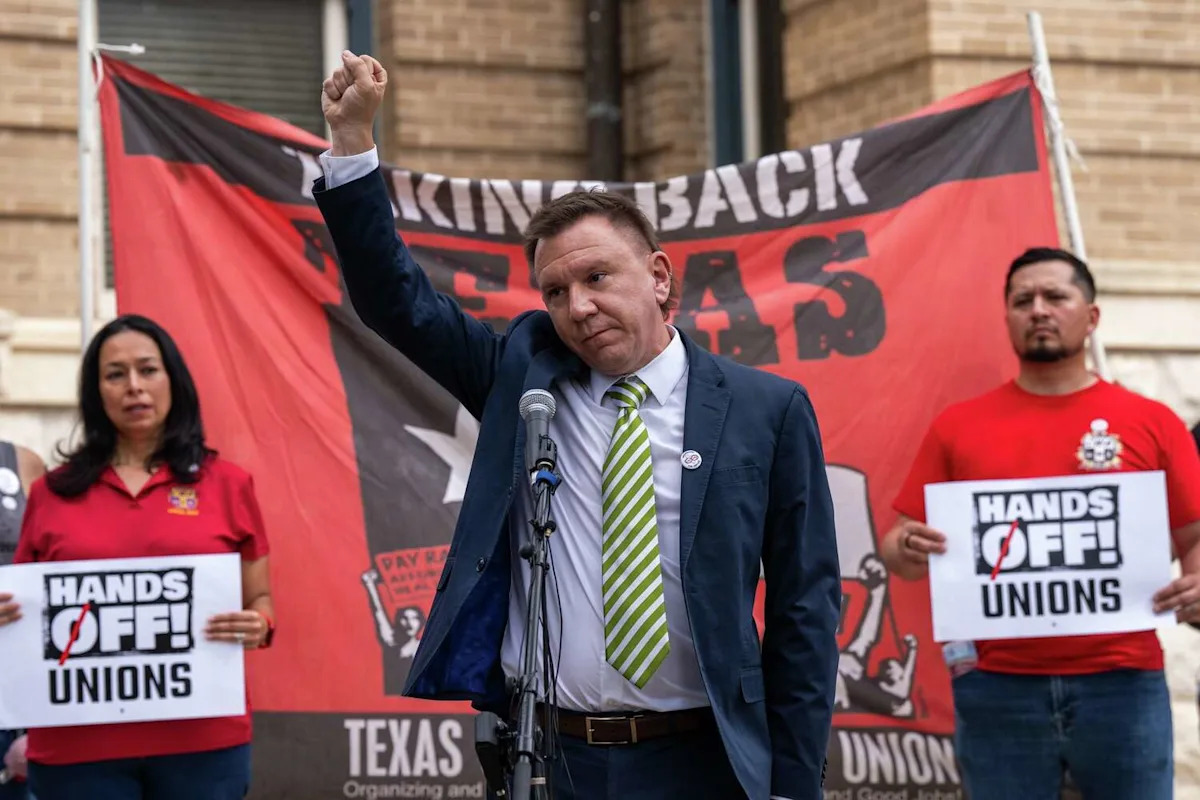After a Hays County district judge ordered Texas State University to provide due process to a tenured professor fired for his speech at a socialism conference, the university doubled down on its decision to let the professor go.
“After a thorough review of Dr. Alter’s conduct and the information provided during his due process hearing, President (Kelly) Damphousse has notified Dr. Alter that his employment at Texas State University is terminated, effective immediately,” the university said in a statement to the American-Statesman Monday.
The Texas State Employees Union said in a news release that the termination is “deeply troubling” and jeopardizes the first amendment rights of Tom Alter, a tenured history professor who specializes in protest movements, labor and capitalism.
READ MORE: Texas State University president fires professor for remarks ‘advocating violence’
In early September, conservative online outlet Texas Scorecard published a video of Alter talking about the importance of organization for revolution at the Revolutionary Socialism Conference. In the video, Alter said “without organization, how can anyone expect to overthrow the most bloodthirsty, profit-driven, mad organization in the history of the world, that of the U.S. government?”
University President Kelly Damphousse initially terminated Alter on Sept. 10, shortly after the university told the conservative outlet that it would investigate Alter’s comments. Hours after the Scorecard article published, Damphousse said the university terminated the professor for “conduct that advocates for inciting violence” and speech that does not reflect Texas State’s values.
Alter later sued the university over his termination, which he said violates his free speech rights and reflects a broader political attack to silence unfavorable speech in higher education. In late September, a Hays County judge ordered the university to reinstate Alter and implement its own due process procedures, including a hearing. Monday’s termination reflects Texas State’s subsequent decision.
In an interview Tuesday with the American-Statesman, Alter said he attended the revolutionary socialism conference in his individual capacity and spoke hypothetically about organization strategies in resistance. He said he was not advocating for overthrowing the government nor for violence and was not speaking as he would in a classroom.
“That doesn’t enter my classroom,” Alter said about advocacy. “But as a citizen of the U.S., I have my protected free speech rights.”
Though disappointed in the university’s decision, Alter said he has faith legal action will prevail in his favor. He plans to appeal the university’s decision through its internal processes.
Controversy on college campuses
Texas State University, a public institution in San Marcos that enrolls about 40,000 students, was at the epicenter of political controversy this fall as universities wrestled with increasing calls from conservative politicians to censor unfavorable speech.
After Alter’s termination, Gov. Greg Abbott publicly called for the university to “expel” a student who a viral video showed apparently mocking Charlie Kirk’s assassination. Shortly after the post, the university confirmed the student was no longer enrolled.
On Sept. 25, Texas Rep. Erin Zwiener, D-San Marcos, said Katrina Meadors, a faculty recruiter for Texas State University, had also been terminated for social media remarks that criticized the university for removing the student. The university confirmed to the American-Statesman that Meadors is no longer employed.
Damphousse addressed faculty and staff in an email Monday before Alter’s employment decision became public, affirming the university’s commitment to “listening, collaborating and supporting you” and promising to restore trust during this moment’s “challenging times.”
“I am unable to specifically address personnel and student issues, but please do not mistake that silence for indifference or lack of empathy,” Damphousse said. “What I can tell you is this: the decisions I make as president are guided by my commitment to ensuring that the mission of this university endures for generations to come.”
Alter said he has been buoyed by the support of the American Association of University Professors and the university’s employee union, the American Historical Association, and numerous colleagues and students. He encouraged faculty and students to continue exercising their free speech rights despite fear of consequences.
“We’re still fighting,” Alter said. “This is a broad fight for academic freedom and free speech.”
“My case is not a one-off,” he added.

